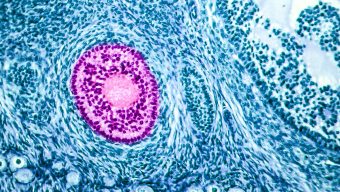
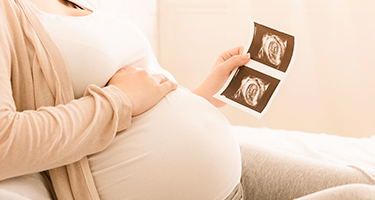
IVF (In Vitro Fertilisation) is a type of assisted reproduction where eggs are fertilised with sperm in a laboratory setting. This treatment is commonly used for individuals and couples that have ovulation disorders or are experiencing fertility difficulties, including those with blocked or damaged fallopian tubes, male infertility, endometriosis, or unexplained infertility. IVF can be performed using the patient’s own eggs and sperm, or with the help of donor eggs or donor sperm depending on individual circumstances. At our IVF clinic in London, we offer advanced fertility services tailored to each patient’s needs, supporting a wide range of family-building goals—including treatment for heterosexual couples, same-sex couples, and single women looking to conceive.

The IVF process begins with ovarian stimulation, where hormone injections (gonadotropins) are used to stimulate the ovaries to produce multiple eggs in one cycle. This increases the chances of success by allowing several eggs to be collected for fertilisation.
Once mature, the eggs are retrieved from the ovaries through a minor procedure and combined with a prepared sperm sample (from a partner or donor) in the laboratory. This creates embryos, which are closely monitored by our embryologists to assess their development.
The highest quality embryo is then selected and transferred into the uterus at the optimal time—usually based on the thickness of the endometrium—to maximise the chance of implantation and successful pregnancy. Any remaining good-quality embryos can be frozen for future use through a process called vitrification. Sometimes, all of the embryos will need to be frozen, for example in case of genetic testing of the embryos or other medical indications, this will all be discussed in the initial consultation.
All stages of your IVF treatment are managed by our experienced team of fertility specialists using state-of-the-art technology, ensuring that your fertility journey is supported with the highest standard of care.
IVF treatment is recommended in the following cases:
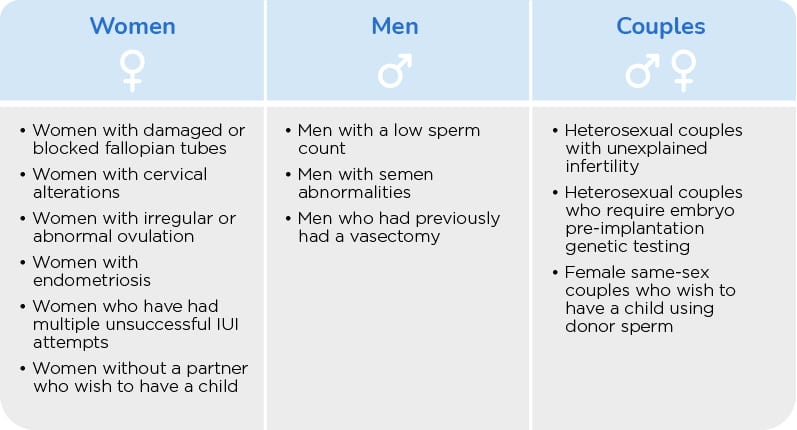

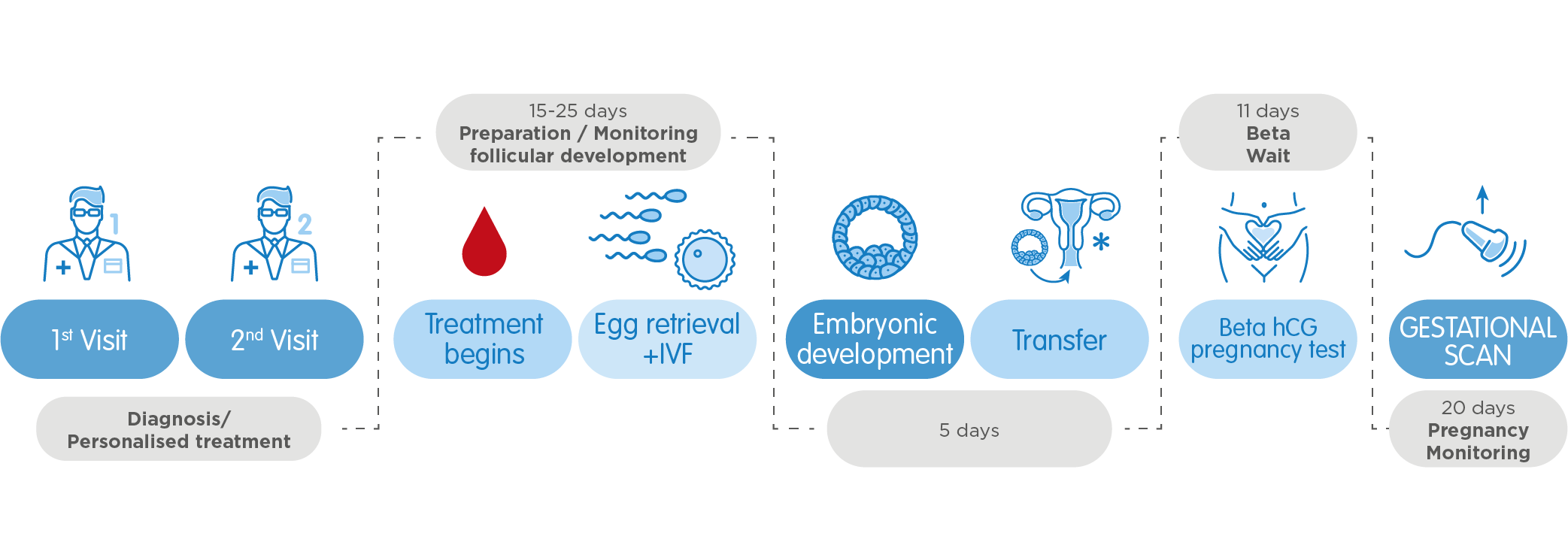
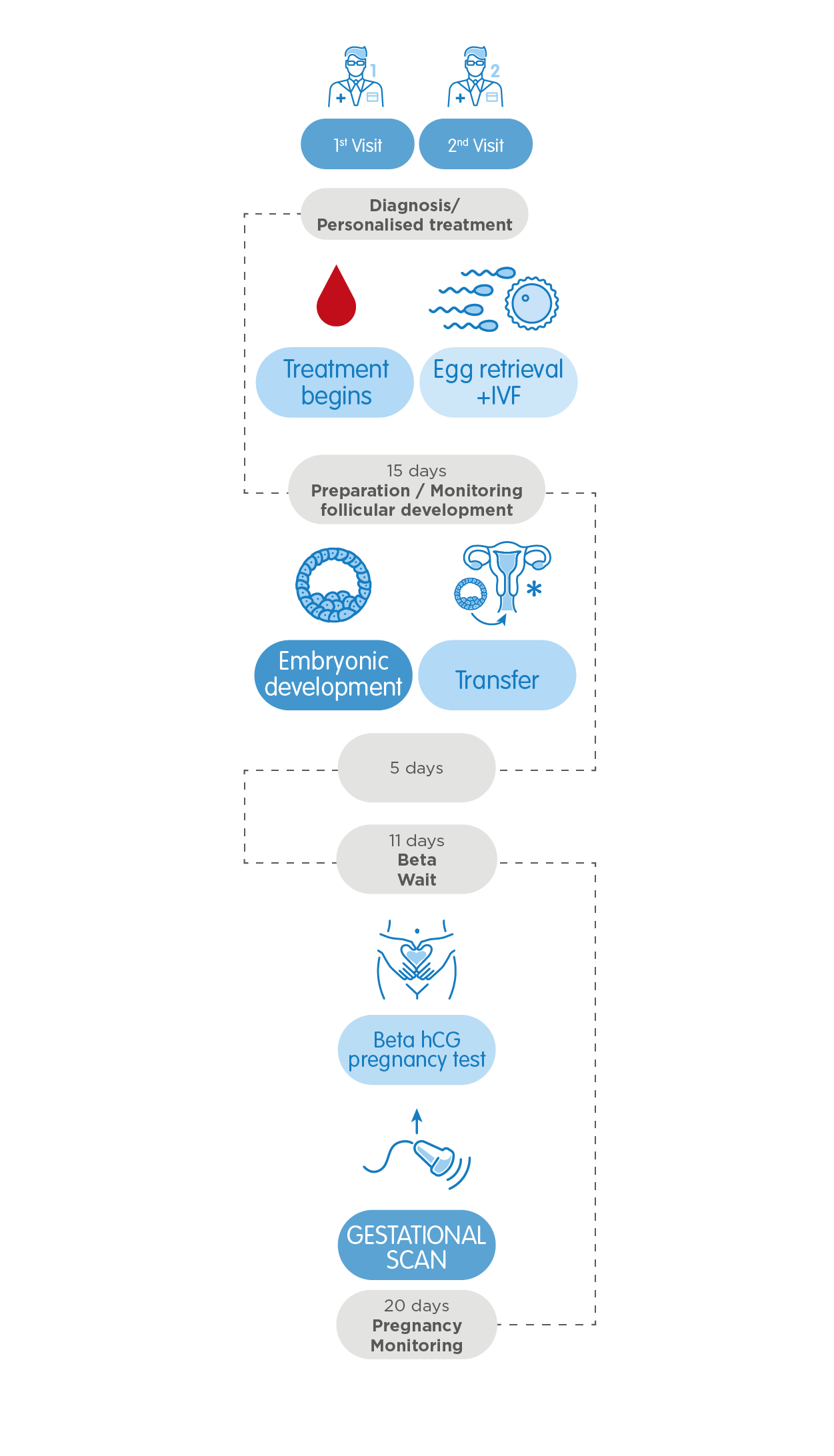
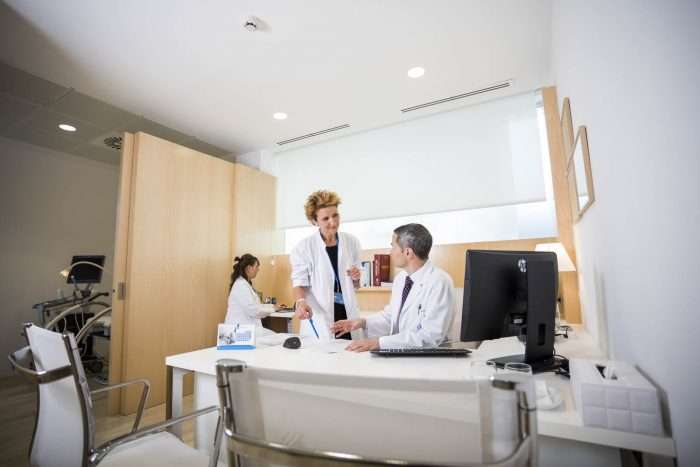
Treatment begins with ovarian stimulation, which involves taking daily injections of hormones self-administered at home. This step is timed to the menstrual cycle and lasts for approximately 10 – 12 days, this is the beginning of your fertility journey. Women typically release one egg each month. Ovarian stimulation increases success rates by promoting the growth of multiple follicles, leading to a higher number of eggs being collected.
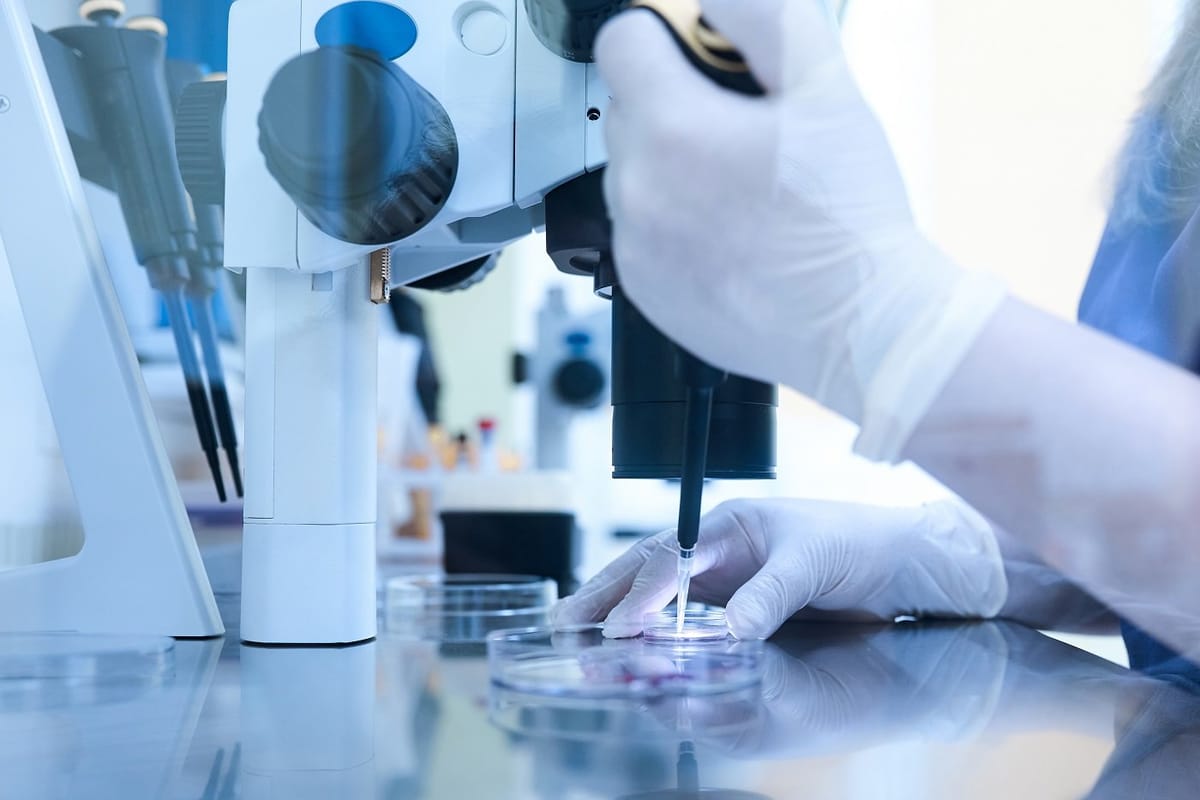
During ovarian stimulation, the growth of the follicles is closely monitoring with regular ultrasound scans until our specialists can verify the follicles have reached an adequate number and size.
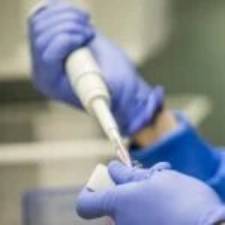
Once the follicles have reached the right stage in their development, we induce ovulation using a trigger injection. An egg collection is scheduled 36 hours later. During this short surgical procedure, clinicians aspirate the follicles to collect the eggs contained inside. An egg collection is performed under sedation and lasts for no more than 15 – 20 minute to avoid any possible discomfort. Patients who decide to preserve their fertility during the planning stage can undergo egg freezing at the time of egg collection.
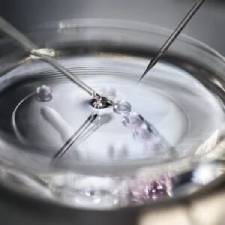
The eggs are fertilised in the laboratory by introducing a prepared sperm sample from the male partner or a donor.
There are two ways to fertilise the eggs:
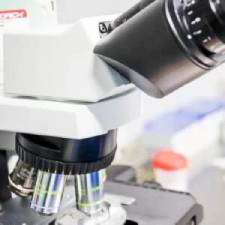
Embryo culture lasts for 5 – 6 days. After fertilisation, the embryos begin their development in special incubators with a culture medium that provides them with everything they need to grow. During this time, embryologists monitor and analyse their development in order to assess their quality.

Before the transfer, we assess the thickness of the endometrium lining to ensure it is optimal to receive the embryo and facilitate pregnancy. This helps determine the best time for transfer. The highest quality embryo is selected and transferred using a thin catheter. The procedure is quick, painless, and doesn’t require anaesthesia.
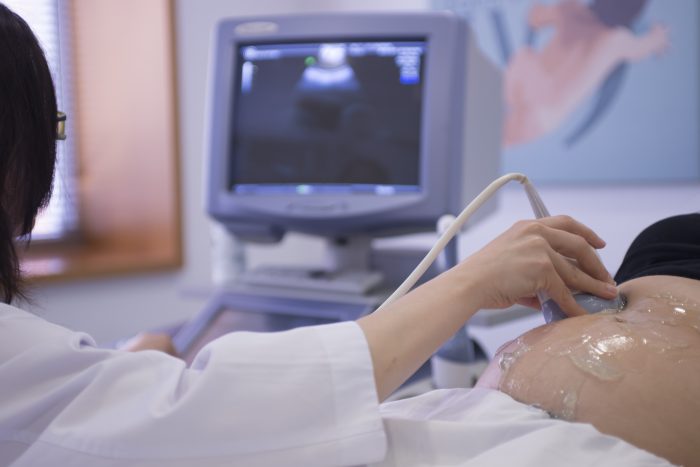
A blood pregnancy test is scheduled 11 – 12 days later. If the result is positive, an early pregnancy scan is scheduled 20 days later. Once discharged, you can begin your antenatal care with the NHS or any private fertility clinic provider.
After your embryo transfer, a blood pregnancy test will be scheduled 11–12 days later to determine if the treatment has been successful. This waiting period can be emotionally challenging, and our team is here to offer guidance and fertility counselling to support you through this time. If your result is positive, we’ll arrange an early pregnancy scan approximately three weeks later to confirm the pregnancy and assess early development. If the outcome is not what you had hoped for, we’ll invite you for a review consultation to discuss your cycle in detail and explore the most appropriate next steps in your fertility journey. Our dedicated specialists are here to provide both clinical and emotional support, whatever the result.

IVF and other fertility treatments enable human fertilisation to occur in a controlled laboratory environment, which can significantly increase the chances of conception, especially for patients facing more complex fertility problems. It allows fertilisation using either a partner’s or donor sperm. It offers more insight into egg and embryo quality than less invasive methods such as intrauterine insemination (IUI) or artificial insemination.
IVF procedure is also the most effective type of fertility treatment for women with blocked fallopian tubes, endometriosis, or when sperm quality is compromised. The ability to monitor every stage, from fertilisation and embryo transfer to implantation, gives specialists greater control over achieving a successful pregnancy.
We are proud to offer some of the highest live birth rates among private clinics in the UK. All of these can be found on our success rates page for different age ranges and treatment types. One common theme that exists is that we exceed the UK national average across all categories. Our success is based on personalised care, cutting-edge technology, and years of experience in infertility treatments. Each patient’s situation is unique, which is why we recommend a full consultation with one of our fertility experts to understand your chances of achieving a successful pregnancy.
The costs of IVF treatment can vary depending on your individual needs and the specific elements involved in your cycle. Our standard IVF packages include everything from monitoring scans and blood tests to sperm preparation, egg collection, and embryo culture. Costs for fertility drugs and medications are billed separately, as dosage varies between patients.
After your initial consultation, you’ll receive a full treatment plan and costs so you’ll know exactly what’s included and what to expect financially. Our team is happy to discuss available options and address any questions you may have regarding payment and planning.
